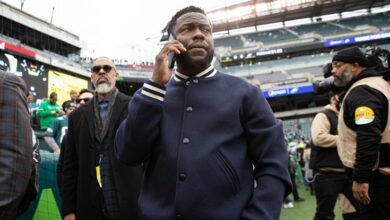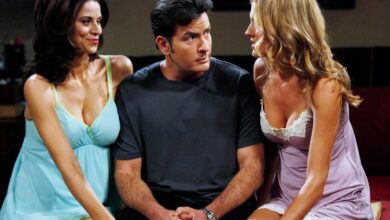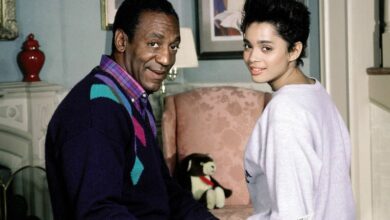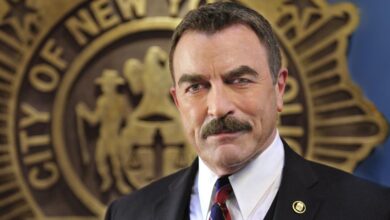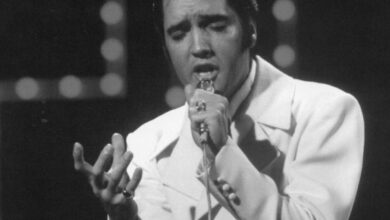How Paul McCartney released the ultimate Britpop record
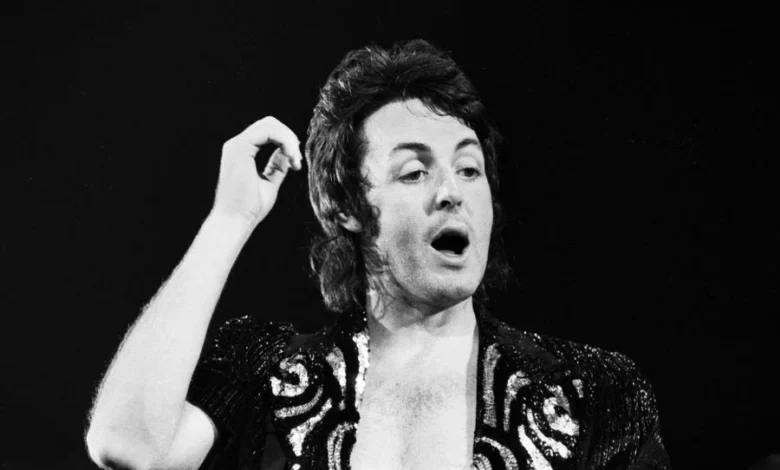
Greeted with mass acclaim upon release, Flaming Pie has become generally regarded as Paul McCartney’s return to form after a series of disappointing returns. Part of the reason it garnered such a healthy response from fans was its long gestation period – McCartney spent the best part of five years writing it – but it also coincided with the rise of Britpop, which was indebted in part to McCartney’s work on Sgt. Peppers Lonely Hearts Club Band and Abbey Road.
A sprightly, poppy album encompassing blues, soul, jazz and vaudeville, Flaming Pie didn’t set out to reinvent the wheel, but to show who was behind the driving seat at a time when everyone from Richard Ashcroft to Noel Gallagher was proclaiming themselves as the best thing since The Beatles.
Taking inspiration from The Anthology, McCartney returns to the sprawling ambition that underpinned The White Album, and Flaming Pie is a catholic record, even returning the agnostic bassist to the religious paths of his youth. ‘Little Willow’ returns the composer to his roots, and the finished track is a lilting, lyrical ode that was in no doubt inspired by his wife’s cancer and impending death.
And the songs continue the themes of The White Album, embodying the rush, frenzy, fear and romance of the double album, albeit sung by the voice of a man in his mid-1950s. No longer did the singer sound kitschy or cute as he did in the 1980s – his vocals are lived-in, inhabiting every vocal as if rehearsing every detail before putting the final take to record.
The creative spontaneity had made way for something fresher and more complete, and McCartney created an album that was dense, towering and deeply truthful. While the songs ‘Young Boy’, ‘The World Tonight’, ‘Calico Skies’ and ‘Somedays’ were individually terrific, they blended well together, creating a diaristic whole that showcased the singer’s abilities to exhibit himself, if he was brave enough to do so.
It’s the type of album that invited re-listens, but the melodies (especially the buoyant ‘Beautiful Night’) made it easy for listeners in 1997 to enjoy on first purchase. Ringo Starr was co-credited on ‘Really Love You’, making it the first time a McCartney-Starkey composition was issued to the public. And then there was his duet with Steve Miller, ‘Used to Be Bad’, which reminded listeners of the pounding rocker they finished in the 1960s.
“I think it goes back to the original session at Olympic Studios,” McCartney admitted, “Where we’d had an argumentative Beatles meeting and the session got cancelled. Steve was in the studio, so we stayed there and recorded ‘My Dark Hour.’”
Sliding out perhaps the greatest coup in his career, the bassist cast off the shackles of production duties to work Electric Light Orchestra’s Jeff Lynne, which is why the album carried a more impressive production sheen to the rock output in the 1970s. Nominally a one-man band, McCartney was opening up, inviting guest musicians to contribute to his work. His son James played guitar on the album, and George Martin embellished the background with a series of orchestral style workouts, bringing context to the frame that lay over the painting.
If the album was done to boost his popularity, it did the trick, as the Beatle received some of the most glowing reviews of his career. He was knighted in 1998, although he typically downplayed the occasion by saying it was done to make his girlfriend a “lady.” But for all the quips and rapier-sharp wit, a sadness was growing in the home of chez McCartney.
Linda McCartney had sung on every album her husband had released, but her role was reduced on Flaming Pie, and footage from the time shows a frail woman doing everything in her power to conceal her cancer. She died in 1998, leaving a gap in her husband’s life that he likely has never recovered from.
Tellingly, his next release, Run Devil Run, was a covers album, because he was in no fit state to write an album, but needed to work in the hope of combatting grief. The pain can definitely be heard on ‘Lonesome Town’, a longing ballad that now sounded like the words of a widower embracing his standing in life.
Run Devil Run was a strong return to his roots, but Flaming Pie showed The Beatle living in the present and enjoying the acclaim his work awarded him. It all stemmed from his pride with The Beatles, a band he no longer felt he had to distance himself from. And with Britpop, he realised just how cool it was to be a Beatle.
“[The Beatles Anthology] reminded me of the Beatles’ standards and the standards that we reached with the songs,” McCartney recalled “So in a way it was a refresher course that set the framework for this album.”

